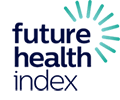Three criteria for better patient outcomes in ASEAN Pacific


Feb 28, 2019 - reading time 5 mins
By Ivy Lai Country Manager, Philips Singapore Ivy Lai is the Country Manager for Philips Singapore. She is responsible for overseeing Philips Singapore’s transition strategy from a consumer electronics company to a leader in health technology.

Philips’ Future Health Index (FHI) study evaluates the readiness of countries to address global health challenges and build efficient and effective healthcare systems. To help achieve better patient outcomes, we believe countries need to focus on three key criteria – access, satisfaction, and efficiency.

We recently released the third edition of our Future Health Index (FHI) report[1], a study designed to determine the readiness of countries in addressing global health challenges and building efficient and effective healthcare systems. We analyzed primary research and third-party data from 16 countries, representing about half of the world’s population, including Singapore and Australia. As part of this research, we also examined these countries’ preparedness for a ‘value-based care’ model – a healthcare delivery model in which providers, including hospitals and physicians, are paid based on patients’ health outcomes, rather than the amount of healthcare services that they provide. The new indicator we developed to help assess this is the Value Measure, which is based on three key criteria – access (looking at how universal and affordable healthcare is in a country), satisfaction (considering the perspective of healthcare professionals and the general population on a healthcare system’s performance and trustworthiness) and efficiency (evaluating a country’s spending on healthcare as a percentage of GDP). We believe that by focusing on these areas, countries can build more efficient and effective healthcare systems for better patient outcomes overall. So, how are healthcare systems faring in this part of the world?
High Value Measures in ASEAN Pacific
It’s encouraging to see that the two countries we looked at in ASEAN Pacific – Singapore and Australia – are doing well. Both have higher Value Measures, 54.61 and 52.59 respectively, than the 16-country average of 43.48. Not only that but Singapore tops the list for the efficiency of its healthcare system, boasting the most favorable ratio of spend versus health outcomes among the countries included in the study, with a ratio of 17.9 – nearly double the 16-country average of 9.5. Singapore also records the highest overall satisfaction score (68.27), and along with Saudi Arabia has the highest percentage of healthcare professionals (82%) feeling that the healthcare available via health systems meets their patients’ needs, significantly higher than the survey’s average of 59%. Despite this, the report identifies ‘access to care’ as a critical area for improvement, with the city-state scoring below average on this metric. This is mostly driven by a lower than average density of skilled healthcare professionals and number of hospital beds in relation to the size of the population. By comparison, Australia outperforms the 16-country average for access to care and satisfaction, however falls behind for efficiency. Its high access score results from having one of the highest densities of skilled physicians relative to the country’s population, and its satisfaction score is thanks to positive perceptions and trust among healthcare professionals and the general public. These are great results for two of the region’s developed nations, but neither can afford to be complacent. Continued investment in technology infrastructure and education will be crucial for both countries to close the gaps where they need to for better health outcomes, and to maintain their world-leading positions.
About Future Health Index
The Future Health Index (FHI) is a research-based platform designed to help determine the readiness of countries to address global health challenges and build sustainable, fit-for-purpose national health systems.
Share this article
Topics
Read more about this topic
-
![Hospitals of the future: time for Singapore to have a re-design?]()
October 22, 2021
-
![Healthcare ramifications for an endemic virus | Philips]()
July 19, 2021



